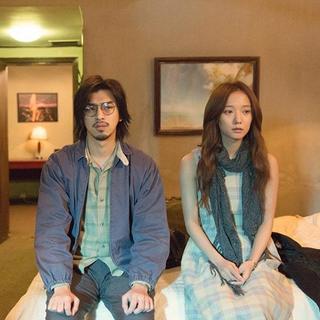
介绍:
Having dominated China's box office rankings for about a week, the notorious teen fantasy film Tiny Times 3 gave way to yet another controversial Chinese movie. But to be fair, first time director Han Han's film-making debut is not marred by low taste. The criticism mostly comes from a demanding audience with high expectations.
In 1999, Han Han shot to fame after winning a national writing competition, one year ahead of Guo Jingming, the director behind the Tiny Times franchise. But it seems that good writing skills are the only thing the two have in common, and after acquiring a sizable readership, the young lads went down totally different paths.
Unlike Guo Jingming, who is determined to tap the pockets of his fans and has made himself quite wealthy, Han Han seems to have chosen to enjoy life. As a professional racing car driver and a blogger who publishes thought-provoking and sometimes controversial articles from time to time, he has proven his talent in the things which interest him. Over the years he has attracted both support and opposition, and both sides take pride in critical thinking and high taste. This is why Han Han's film "The Continent" could generate enough earnings to topple the dominance of "Tiny Times 3" and at the same time spark serious discussion about the film's production value and ideas.
This road movie follows three young men on a journey across China. Han Han's supporters may be able to identify his distinctive style. Instead of a commercial blockbuster, carefully calibrated to stir up the appetite of innocent adolescents, "The Continent" seems very much like Han's blog, where he tosses out ideas as he comes across them. If you are willing to join the ride, you MAY be led to brooding over contradictory life styles.
That's because the film depicts random encounters intermittently from the perspective of two different characters. Both mange to reconstruct their understanding of the world during the journey, but one has his obsessions cured, another has them entrenched deeper in his way of living.
The most critical viewers will not be happy with this arrangement: they will perhaps believe that the different parts of the film are rather loosely connected, if connected at all. Others may pick on the dialogue: some of which sounds so out of place that people suspect entire scenes have been invented to accommodate them. I'm afraid I have to agree with such well-targeted criticism, but still I believe it is something a more mainstream viewer will appreciate.
I went to see the film after an extremely intense day at work, but after an hour and a half when I walked out, I felt completely refreshed, as if I had taken off my jacket of weariness and left it in the dimly-lit screening room. The funny jokes, the touching score and the beautiful scenery certainly helped, but it was the free spirit that really emancipated me from the yoke of my daily routines.
大家还在听

